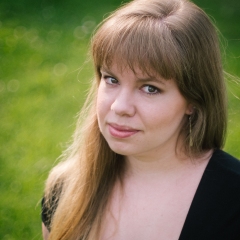Hello gentle reader,
While querying, you may be faced with the situation of having an agent request “an exclusive”. It’s when you send your manuscript to this agent alone and stop querying other agents until she gives you the green light.
Does this happen often?
According to a completely unscientific Twitter poll of my own doing, it seems to happen more often than you might imagine. Therefore if you’re querying, you might want to think about what you’ll do if/when faced with this situation.
How do you respond?
First, you celebrate, because this is a request!
Then you have three options. Panicking isn’t one of them.

Option 1: Your manuscript is already on the desk of one or several agents, so you can’t actually grant this exclusivity. In this case, you have to inform the agent who requested an exclusive and she’ll decide whether she still wants to read your manuscript or not.
Option 2: You don’t have any material out but you want to keep your options open, i.e. keep querying. This is what’s usually advised. Granting exclusivity means you stop querying for at least a couple of weeks, which many see as a waste of time, especially since there’s no way to predict the exclusivity will result in an offer of representation. In this case, be honest and let the agent know you’re not willing to grant anyone exclusivity. Again, she’ll either choose to request anyway or she’ll step down.
Option 3: You don’t have any material out but you’re willing to grant to the requesting agent the exclusivity she asked for.
Now, why on earth would you do this?
Since the consensus seems to be that granting an agent an exclusive isn’t to your advantage, when and how should you decide to say yes to this request?
- The agent is your Dream Agent: in this case, you might not want to risk saying no to her. You might decide granting exclusive is worth it, even if the agent ends up rejecting your manuscript.
- The agent is from a Big Agency: there are agents from big/famous agencies who ALWAYS request exclusives and refuse to read if this exclusivity isn’t granted. On the plus side, it often means they request material they’re really excited about: they believe in it and they want to have the chance to make an offer before anyone else. It’s flattering. On the downside, they might not make an offer in the end and you’ve wasted time. Again, it’s up to you to decide if you think it’s worth it.
- If you grant exclusivity, make sure you set a deadline of no more than 4 weeks and make sure the agent agrees to it. If you haven’t heard from the agent after 4 weeks, nudge and feel free to start querying again (unless the agent replies and asks for more time… or makes an offer!).
Whichever the case, GRANTING AN EXCLUSIVE SHOULD FEEL LIKE THE RIGHT DECISION AT THE TIME. Dahlia Adler has a great post on querying red flags, and she explains that if it feels like an agent is making an unreasonable request, they most likely are making an unreasonable request.
To finish this post on a personal note, here is my own experience with exclusives:
I had one request for an exclusive in my querying life. I said yes. Here is why:
- I had no material out at the time. I hadn’t even started querying. I met the agent at a writers’ conference. She read the first 10 pages of my manuscript, and asked for the rest – as an exclusive.
- She was from a Big Agency, and she was used to requesting exclusives when she loved a project.
- She was one of my dream agents.
- I asked for a 4-week deadline. She replied to me within 2 weeks.
- She didn’t offer representation, but she did give me valuable feedback.
To this day, I don’t regret granting this exclusive. So my advice on this topic is: do what feels right and what you think is best for you and your manuscript at the time of the request.
What do you think? Have you experienced a request for an exclusive while querying? What did you do? Feel free to leave me a comment below!
















